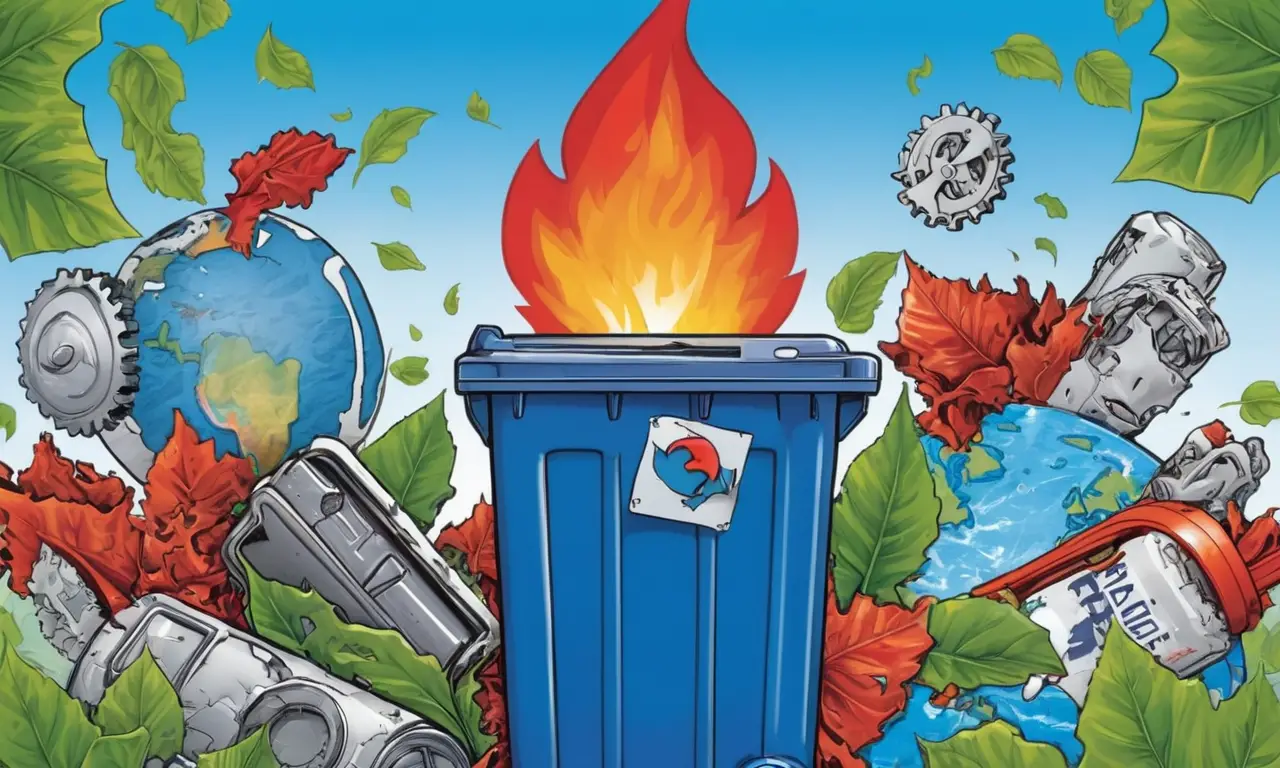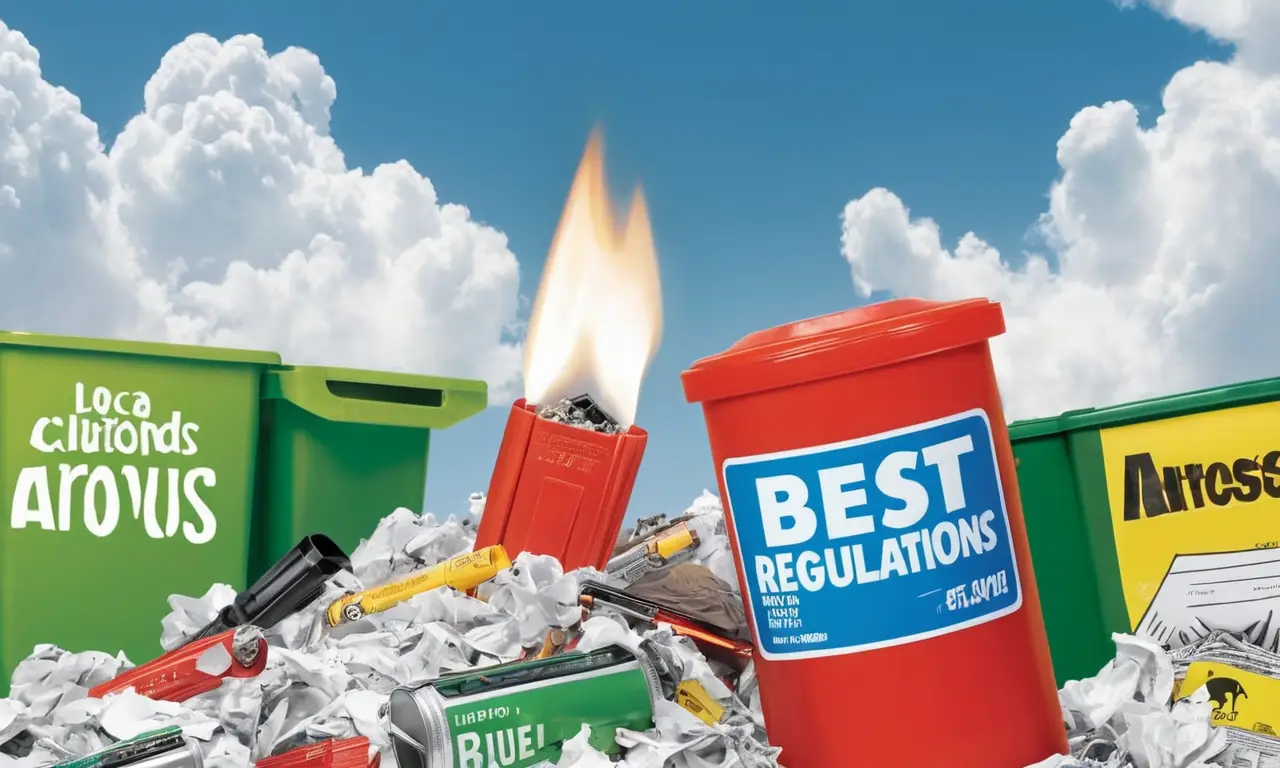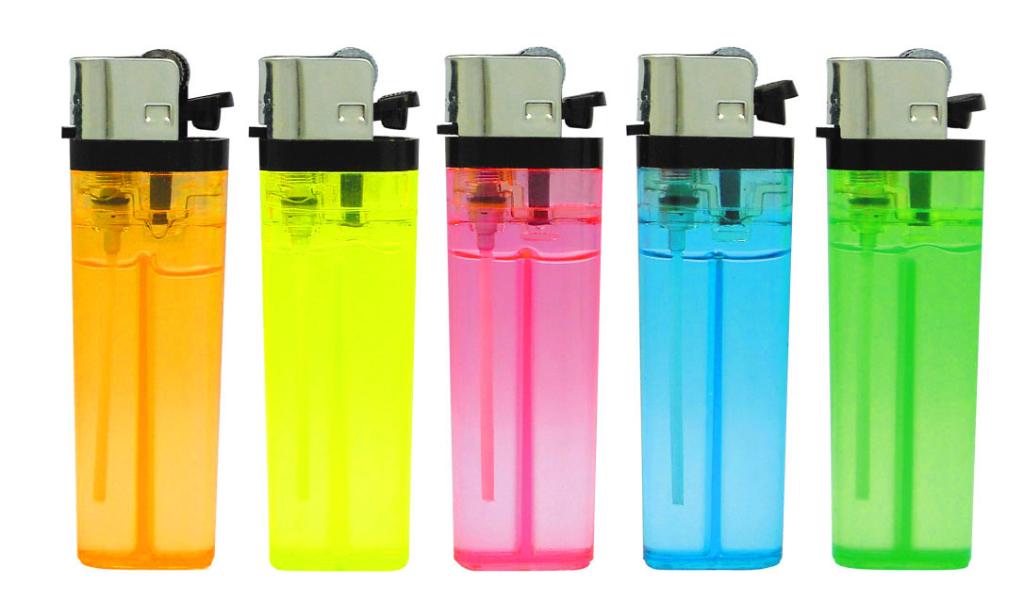Bic lighters are ubiquitous, known for their affordability and convenience. However, when it comes to disposal, a common question arises: are bic lighters recyclable? Unfortunately, the answer isn’t straightforward. Due to their unique composition of metal, plastic, and flammable materials, Bic lighters often pose challenges for traditional recycling processes. This article delves into the complexities surrounding Bic lighter recycling, exploring the reasons behind their non-recyclability and outlining proper disposal methods.
This article will examine the intricate composition of Bic lighters, highlighting the factors that make them difficult to recycle. We’ll then discuss the specific challenges faced by recycling facilities when handling these lighters. Furthermore, we’ll provide guidance on how to dispose of Bic lighters responsibly as hazardous waste, emphasizing the importance of adhering to local regulations. Finally, we’ll explore alternative options to traditional recycling that can help minimize the environmental impact of these disposable lighters.
Bic Lighter Composition
Bic lighters are comprised of several materials, each presenting its own challenges for recycling:
- Metal: The casing of a Bic lighter is typically made of steel or aluminum, both of which are generally recyclable. However, the presence of other materials within the casing, such as plastic components and the fuel reservoir, can contaminate the metal and render it unsuitable for standard recycling processes.
Plastic: Bic lighters utilize various types of plastic for their internal mechanisms and outer casings. These plastics often contain additives and blends that make them difficult to separate and process in conventional recycling streams.
Flammable Materials: The fuel reservoir within a Bic lighter contains butane, a highly flammable gas. This poses a significant safety hazard during the recycling process and necessitates specialized handling procedures.
Recycling Challenges

Recycling facilities face several hurdles when attempting to recycle Bic lighters:
- Material Separation: The intricate combination of metal, plastic, and flammable materials within a Bic lighter makes it challenging to separate these components effectively. Traditional sorting methods often fail to adequately distinguish between these materials, leading to contamination and hindering the recycling process.
Contamination Risks: The presence of butane fuel in the reservoir poses a serious risk of fire or explosion during the recycling process. This necessitates specialized equipment and safety protocols that are not always readily available at standard recycling facilities.
Economic Viability: Due to the complexities involved in processing Bic lighters, the economic feasibility of recycling them is often questionable. The cost of separating materials, handling flammable components, and ensuring safe disposal may outweigh the value of the recycled materials.
Hazardous Waste Disposal
Given the challenges associated with recycling Bic lighters, proper disposal as hazardous waste is crucial:
- Local Regulations: It’s essential to consult your local municipality or waste management authority for specific guidelines on disposing of Bic lighters. They will provide information on designated collection points or hazardous waste disposal programs in your area.
- Safety Precautions: When handling Bic lighters, always exercise caution. Avoid puncturing or crushing them, as this can release flammable butane gas. Store them in a cool, dry place away from heat sources and open flames.
Local Regulations

Local regulations regarding the disposal of Bic lighters vary significantly:
- Designated Collection Points: Many municipalities have designated collection points for hazardous waste, including items like lighters. These points often operate on specific days or require advance scheduling.
- Household Hazardous Waste Programs: Some communities offer household hazardous waste programs that allow residents to dispose of various items, including lighters, at designated facilities.
Alternatives to Recycling
While traditional recycling may not be feasible for Bic lighters, there are alternative options to consider:
- Refillable Lighters: Opting for refillable lighters can significantly reduce the environmental impact associated with disposable lighters. These lighters allow you to replenish the fuel instead of discarding the entire unit.
- Electric Alternatives: Consider using electric lighters as a sustainable alternative. These lighters eliminate the need for flammable fuels and often feature rechargeable batteries, reducing reliance on single-use products.
Conclusion
While the convenience of Bic lighters is undeniable, their complex composition presents significant challenges for traditional recycling processes. The presence of metal, plastic, and flammable materials necessitates specialized handling procedures that are not always readily available at standard recycling facilities. Therefore, it’s crucial to dispose of are bic lighters recyclable responsibly as hazardous waste by adhering to local regulations and utilizing designated collection points or programs. Exploring alternatives like refillable lighters or electric options can further minimize the environmental impact associated with these disposable lighters.



